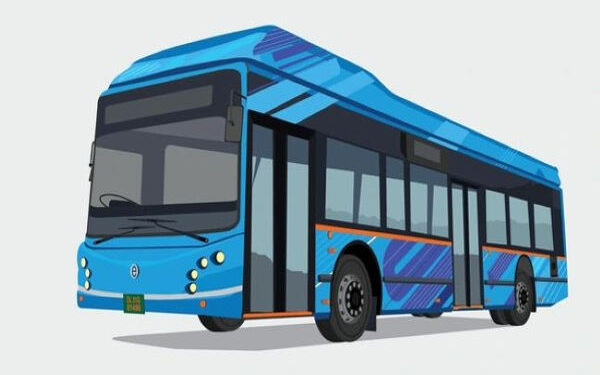The nonprofit public policy organization EGROW Foundation and the renowned Indian consulting firm Primus Partners collaborated to release a comprehensive study called “Retrofitting of Inter-City Diesel Passenger Buses: An Economic Analysis and Policy Prescriptions.” The financial and environmental advantages of retrofitting diesel buses—which are a major source of carbon emissions—are discussed in this study. When compared to a traditional internal combustion engine (ICE) bus, retrofitting a standard 9-meter bus can lower operating costs by roughly 34.48%, according to the report. India’s goal of creating 30-35 million new green jobs by 2047 would be greatly advanced if it retrofits 20,000 buses annually, saving about 500,000 tons of diesel and reducing crude oil imports by 12.7 million barrels annually.
The report also highlights the strong rise in the global e-mobility market, which increased by 30% in just three years, from 2 million vehicles in 2016 to 7.2 million in 2019. The report’s data came from industry pilot programs that involved bus routes that traveled approximately 150 km between Pune and Mumbai. This study presents a thorough analysis of the differences between electric vehicles (EVs) and internal combustion engines (ICE) buses in order to evaluate the advantages and costs of EV retrofitting as well as the need for larger-scale pilot programs.
In their foreword, Mr. Davinder Sandhu, Chairperson of Primus Partners, and Dr. Charan Singh, CEO of the EGROW Foundation, noted that retrofitting not only has significant financial advantages but also plays a significant role in environmental enhancement and wider economic revival. This strategy is essential to sustainable urban transportation because it makes use of the current infrastructure to shift towards cleaner mobility.
According to the report, there will be 3 million buses in India by 2030, which means that higher-pollution sectors like transportation will need to switch to greener technologies. In order to facilitate the retrofitting of diesel buses, it advocates for a comprehensive strategy that includes policy reforms, government financial support, and technological advancements.
The most economical retrofitted bus is a 9-meter model, indicating that retrofitting is significantly more affordable than buying new EVs. Moreover, retrofitting offers significant returns on investment, particularly over a ten-year lifespan. The study also emphasizes how important it is to use renewable energy sources in order to decarbonize, given that more than 75% of India’s domestic electricity currently comes from coal-based power.
To boost the number of retrofitted buses in India, the study suggests a number of policy changes, including updating vehicle scrapping laws, providing government-coordinated retrofit subsidies, and adding retrofitting incentives to the country’s FAME policy. It is also recommended to support state-level policies and modify GST regulations for retrofitting in order to encourage retrofitting and make the development of charging infrastructure easier.







